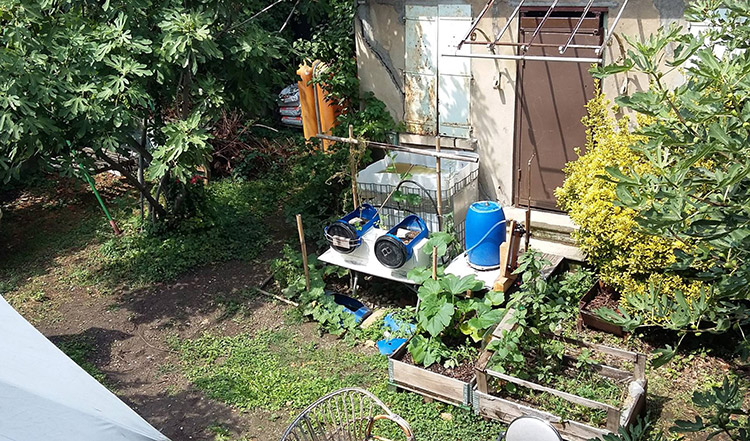Intestinal considerations on the commons
Published 8 September 2016 by Olivier Blondeau
Once we know what the commons can be, how it can be governed and by whom, the question is: What does the commons stand for? That is, what social project does it carry?
Everyone can recognize commons, from the “barbaric hordes” who seek to “uberize” state norms and reglementations, to the post-marxist multitudes as well as those nostalgic of libertarian or even hippie mentalities. First, engineers who wish to share their knowledge, or the défricheurs who, “wavering between pragmatism and radicality”, as Eric Dupin reminds us, seek alternative outlets to those offered up till now to make their words and their actions coherent. But also farmers, or at least people—sometimes neo-ruralists—who care about the environment, who promote permaculture, short circuits and organic farming.
Let’s be caricatural. Some, somewhat condescendingly, will make fun: “The future lies not in your little home garden.” They joke: “You don’t invent a social project by peeing on your tomatoes.” They mock all these projects that seek to invent new ways of producing, consuming and living together.
“Post Consumer Waste Recycling Program”, Yes Men vs. WTO, State University of New York in Plattsburgh (USA), March 2002:
But whether they like it or not, urine—rich in nitrogen, phosphorus, potassium and sulfur—is a natural fertilizer, both efficient and respectful of the environment. It also comes into play in a number of permaculture projects that aim to tackle the problems of world hunger and soil contamination by chemical fertilizers, for example spirulina cultures developed at La Myne eco-hacklab in Villeurbanne.
I’m also thinking of aquaponics projects that use fish excrement to cultivate plants. Aquaponics is perhaps the most fascinating from an intellectual viewpoint, and beyond any ideological position of living together—animals, bacterial plants, machines and humans—in an ecosystem that respects each one.

And of course, with all due respect, how can one not pay tribute to this unrelenting maker of commons: the earthworm and its excrement, which are catalysts in composting and lead some to say that earthworms are more interesting than 3D printers. I could extend this inventory to biogas from human excrement and other gray energy…
Change the world
No need to evoke forgotten goddesses, Gaïa, the earth mother. It’s a pure question of chemistry and intestinal mechanics. In other words: we’re not trying to sell smartphones or 3D printers, we want to very immodestly change the world.
The commons that is currently being built is made up of all these open projects and documented so that anyone can freely appropriate, improve and distribute them. It’s not just about high-end technologies, lines of code, 3D printer files. It’s not something that can easily be fed back to GAFA, collecting the jackpot along the way. It’s often about simple ideas, sometimes sourced from ancestral cultures and very often from worrisome witches, as Weronika Zarachowicz reminded us in Télérama.
The commons must be experimented first and foremost. And it must be experimented under an umbrella of curiosity. Curiosity that Paolo Virno describes as “situated in a no-man’s land, a moment of exodus insinuated between ‘no longer’ and ‘not yet’: no longer a frame of consolidated traditions, capable of protecting the human practice of randomness and contingency; not yet the community of all those who have no pre-existing community to count on.”
It’s useless to politicize this commons too quickly, or to send it back to pre-established “post” schemes and even less to caricature it, often unfairly. It’s more urgent to take the time to experiment with these ways of life and being together that are developing today in these open-air laboratories that are fablabs and third spaces.
Read previous articles on Makery by Olivier Blondeau, co-author of “Libres enfants du savoir numérique” (Free children of digital knowledge)(Editions de l’Eclat, 2000)
